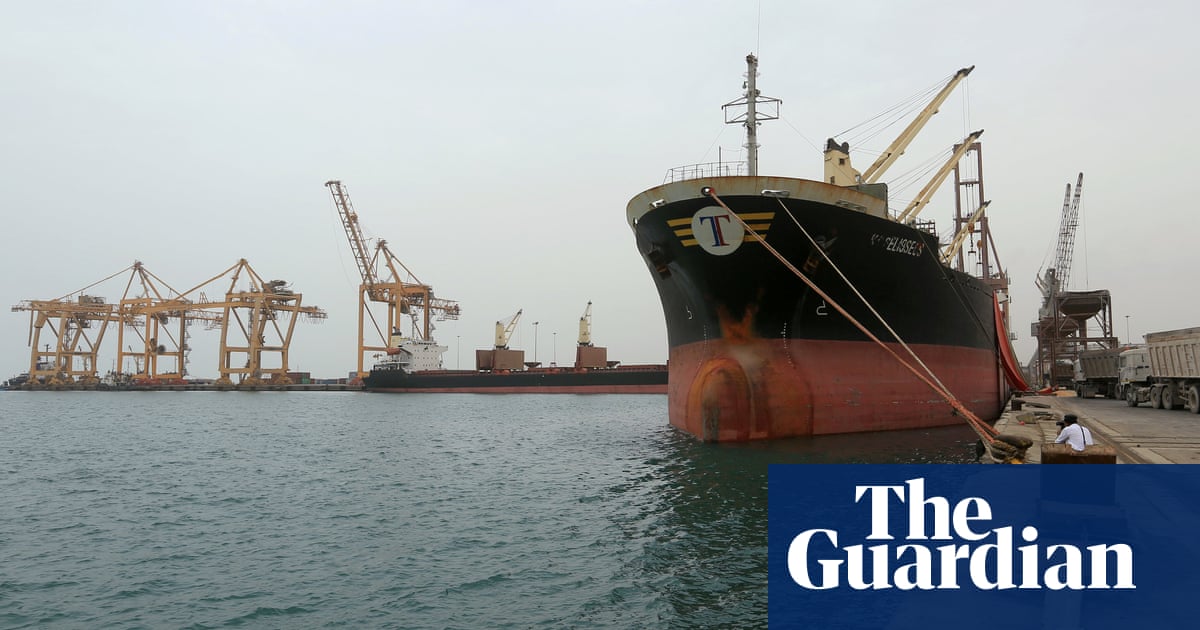The Israeli navy has attacked docks in Yemen’s rebel-held port city of Hodeidah, targeting facilities that are key to aid shipments to the country.
The Israeli military said navy missile ships conducted the strikes, the first time its forces have been involved in attacks against the Houthi rebels.
TheHouthishave repeatedly launched missiles and drones targeting Israel during Israel’s war on Hamas in the Gaza Strip.
The Houthis announced the attack via their satellite news channel Al-Masirah. They said the attack targeted docks there, without elaborating.
Late on Monday, Israel had issued warnings online for Yemenis to evacuate from Ras Isa, Hodeidah and al-Salif ports.
The Israeli military said in a statement on Tuesday: “The port is used to transfer weapons and is a further example of the Houthi terrorist regime’s cynical exploitation of civilian infrastructure in order to advance terrorist activities.”
Hodeidah has been the main entry point for food and other humanitarian aid for millions of Yemenis since the war began when the Houthis seized Yemen’s capital, Sana’a, in 2014.
The Houthis have been launching persistent missile and drone attacks against commercial and military ships in the region in what the group’s leadership has described as an effort to end Israel’s offensive in Gaza.
Between November 2023 and January 2025, the Houthis targeted more than 100 merchant vessels with missiles and drones, sinking two of them and killing four sailors. The threat has greatly reduced the flow of trade through the Red Sea corridor, through which $1tn of goods typically are moved annually.
The Houthis paused attacks in a self-imposed ceasefire until the US launched a broad assault against the rebels in mid-March. Donald Trump paused those attacks just before making a trip to the Middle East, saying the rebels had “capitulated” to American demands.
Early on Tuesday the US defence secretary, Pete Hegseth, wrote on the social platform X that US Navy ships had travelled through the Red Sea and its Bab el-Mandeb Strait “multiple times in recent days” without facing Houthi attacks.
“These transits occurred without challenge and demonstrate the success of both Operation ROUGH RIDER and the President’s Peace Through Strength agenda,” Hegseth wrote ahead of facing Congress for the first time since sharing sensitive military details of America’s military campaign against the Houthis in a Signal chat.
It is unclear how the Houthis will respond now that an attack has come from the sea, rather than the air, from the Israelis.
Meanwhile, a wider, decade-long war in Yemen between the Houthis and the country’s exiled government, backed by a Saudi-led coalition, remains in a stalemate.
